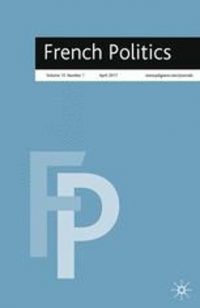New publication: An extraordinary election? A longitudinal perspective of the Québec 2018 election


A new paper by Jean-François Daoust and Alexandra Jabbour is now available online in French Politics. In this article, the authors provide a unique longitudinal perspective of citizens’ vote choice calculus in Quebec provincial elections. The paper is available here.
Abstract: From 1970 to 2018, either the Québec Liberal Party or the Parti Québécois won the elections in Québec. The Coalition Avenir Québec ended this long period of bipartisan alternation by winning a majority of seats in the 2018 election. Using datasets that cover five elections (2007, 2008, 2012, 2014, and 2018) over a period of 11 years, we provide a unique longitudinal perspective of citizens’ vote choice calculus. More specifically, we analyse long-term factors that are known to be crucial to make sense of electoral outcomes. Do factors such as generations, sex, attitudes towards Québec sovereignty and party identification have the same weight in voters’ calculus over time? Our results show a relative stability, but also several interesting variations, especially regarding the effect of support for Québec independence. This perspective deepens our understanding of recent political developments in Québec politics.
This content has been updated on 29 April 2020 at 17 h 24 min.
Comments